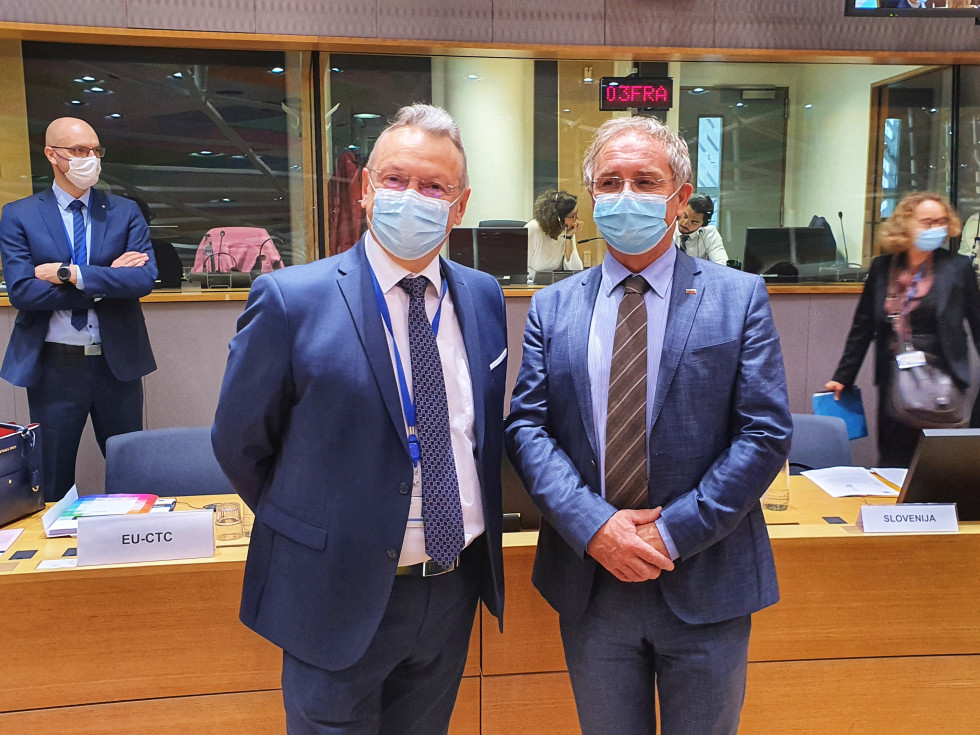Ministers support Commission's proposal to protect refugees from Ukraine

Minister Aleš Hojs and Slovenian permanent representative to the EU Iztok Jarc | Author Ministry of the Interior
They supported the European Commission's proposal to activate the Temporary Protection Directive, which provides refugees from Ukraine with a uniform status and rights in the EU. Slovenia supports the European Commission's proposal, as it represents an effective tool for dealing with situations of mass arrivals. "On the one hand, the proposal ensures immediate protection for those in need, while on the other hand it allows member states to provide assistance on the basis of their national legislation," said Minister Hojs. The ministers were joined by Ukrainian Interior Minister Denis Monastirsky, via videoconference, who described the current situation in Ukraine and asked for further assistance, in particular for the evacuation and reception of refugees from Ukraine.
For the first time, the ministers meet in the format of the Schengen Council. "Slovenia has always supported the idea that the ministers should hold an in-depth and high-quality discussion on the biggest challenges in our common area. The political level can ensure that agreements are implemented in practice." For this first political debate, the Presidency had prepared a situation report on the state of play in the Schengen area. This so-called Schengen barometer focuses on five key areas, namely the situation at the external borders, the migration situation in the EU, the internal security situation, health risks and the situation at internal borders.
"The report is a good basis for further work and it should be further developed in the future, while the barometer should be a dynamic tool so that we can steer the functioning of Schengen accordingly." The ministers reached agreement on a proposal for a regulation on the Schengen evaluation and monitoring mechanism. At the same time, Minister Hojs reiterated Slovenia's position in support of the accession of Croatia, Romania and Bulgaria to the Schengen area as soon as possible.
Over a working lunch, the ministers discussed EU-Latin America cooperation on combating drug trafficking with their counterparts from Latin America and the Caribbean. They also adopted a joint declaration on cooperation in the fight against transnational organised crime. This will strengthen cross-border and international cooperation, which is essential to effectively combat drug trafficking.

